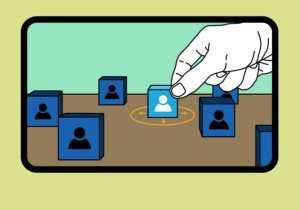DA Compensation: Hourly Billing vs Value Pricing
DA Compensation: Hourly Billing vs Value Pricing
How much are you willing to pay a distant assistant? Some prefer to pay by the hour while others go for compensating per project. Issues on quality, credibility, and time are among the things that any business owner could consider regarding compensation. Read about DA Compensation: Hourly Billing vs Value Pricing.
An Independent Contractor
The line has been drawn.
Hiring distant assistants (DA) is different from hiring traditional employees. DAs are generally considered as independent contractors, which means they work independently from your company or business. That makes them solely responsible for their contributions to the government.
For that, clients have the freedom to decide over compensation. They can agree on a specific amount, and continue with the tasks involved.
Along with it, comes the choice of how they wish to provide compensation. Clients can choose to pay by the hour or per project completed.
What Value Pricing Does
By definition, value pricing is compensating a distant assistant based on the estimated value of his services. As Warren Buffet puts it, “Price is what you pay. Value is what you get.”
 To better illustrate this concept, there is a story about Picasso. One day a woman saw him at a park, and asked him to paint her a portrait. In just few minutes, Picasso showed her the result.
To better illustrate this concept, there is a story about Picasso. One day a woman saw him at a park, and asked him to paint her a portrait. In just few minutes, Picasso showed her the result.
The portrait extremely delighted her. It captured everything about her. So, she asked him how much she should pay. To her surprise, Picasso offered it to her for $5,000.
In response, the woman asked, “How could you charge so high when it only took you awhile to paint it?”
He replied, “Madame, it took me my entire life.”
The value of a distant assistant’s service includes his experience, time, and energy. What appears to be easy may have taken him a lifetime to complete. And, that is what you pay for.
What this does to the distant assistant is…
It gives him a sense of ownership. It motivates him to practice what he is good at. And in so doing, he takes all the time he has to fulfill the need.
Both parties can agree on a specific amount for compensation before they start working together. The downside, however, is there could be endless revisions if the output does not satisfy the client.
The distant assistant’s qualifications can also come into play. The client may ask: 1) does the DA really know what he is doing? 2) how reliable is he? 3) would I get the same value if I work with other DAs?
Overall, it will be good for distant assistants to really provide value on the price they offer.
What Hourly Billing Does
Here’s the case…
You agreed to pay a distant assistant per hour. After he completes a project, however, the output and the number of hours it took him to complete don’t seem to go in hand.
The thing is…
While clients may argue for the quality of work in pricing based on value, they may argue about efficiency when it comes to hourly billing.
For example, you agreed to pay $10 per hour for a data entry job. The project only required the distant assistant to transfer a page-long information about your customers to an Excel spreadsheet. Additional instructions include organizing the sheet to a specific format.
You expected that one project to last only for an hour. What happened instead was, it took 2 hours for the distant assistant to complete it. You ask, “Why should I pay for something that is only worth half the time completed?”
What hourly billing does to the distant assistant is…
It limits him of the time he has to fulfill the project. Consequently, his creativity and ability to produce something well fail expectations. Simply knowing that the output he provides must meet the value demanded by his time can influence the way he works.
“It takes time to create excellence. If it could be done quickly, more people would do it.” -John Wooden
Time itself is valuable in work. You need patience to complete something that is satisfyingly good. What clients can do, in this case, is assess whether they are really willing to pay the price.
An Agreement to Succeed
Each person has his own way of doing things. What works for clients may not work well for the distant assistant. You can pay the distant assistant per hour, give him all the time he needs, and pay him as agreed—and, ask him to change anything when necessary.
 Success calls for an agreement from both parties. Before starting to work with a DA, you can clarify what you want to achieve first so that the distant assistant will be in step with you.
Success calls for an agreement from both parties. Before starting to work with a DA, you can clarify what you want to achieve first so that the distant assistant will be in step with you.
“Excellence is never an accident. It is the result of high intention, sincere effort, intelligent direction, skillful execution and the vision to see obstacles as opportunities.” -Anon
distant assistants differ from traditional employees, who still get paid even when not working during work hours. The flexibility that many (if not all) DAs seek include their ability to be in control of their time. And, the work they have online even if it’s just for freelance can turn into a long-term career.
They can devote their time to a project, and do it because it’s what they love. But, what’s better is when they do it right. Often, it’s the quality of work that clients look after. To some, however, it could be the cost—the fact that they can outsource a project at an inexpensive price.
But, even expense has its own definition. It can even mean the risk that a client places himself in for entrusting a project to someone he hardly knows. This makes trust a critical component of virtual work.
What both client and distant assistant can do is agree on specific goals, trust that they can both fulfill the tasks, and work together to succeed. To clients, consider the resources and options you have and decide on the best way you can pay your DA.
What do you think about DA Compensation: Hourly Billing vs Value Pricing? Visit us on Facebook and distant assistant. Feel free to leave us a rating and review. We would love to hear from you!
About Jaime Jay
Meet Jaime Jay – a man who wears many hats, and wears them all admirably. He's a master connector, an entrepreneur extraordinaire, and a published author who knows how to get things done.
Before he found his way to the business world, Jaime served his country as a brave paratrooper in the U.S. Army. But that's just the beginning of his many accomplishments.
He's the founder of the renowned Bottleneck Distant Assistant Services firm, and his book "Quit Repeating Yourself" has become a must-read for entrepreneurs everywhere.
When he's not busy building his empire, you can find him on his beloved Harley Davidson, cruising through the countryside and taking in the invigorating effects of Uitwaaien – a Dutch practice that involves facing the wind to boost health and relieve stress.
He enjoys spending his free time outside building stuff with his wife, Nikita the dog and their two kittens (for now at least) Tommy and Tater.
He is ‘over-the-moon’ happily married to his wonderful wife Sara, his amazing daughter, Jessica, who is serving our country as a United States Army soldier. Jaime and Sara are the proud grand parents of two beautiful little girls.

Get Your Book Now!
Quit Repeating Yourself provides guidance for entrepreneurs, business leaders, and managers to help prevent unknown challenges from ruining their business.


















